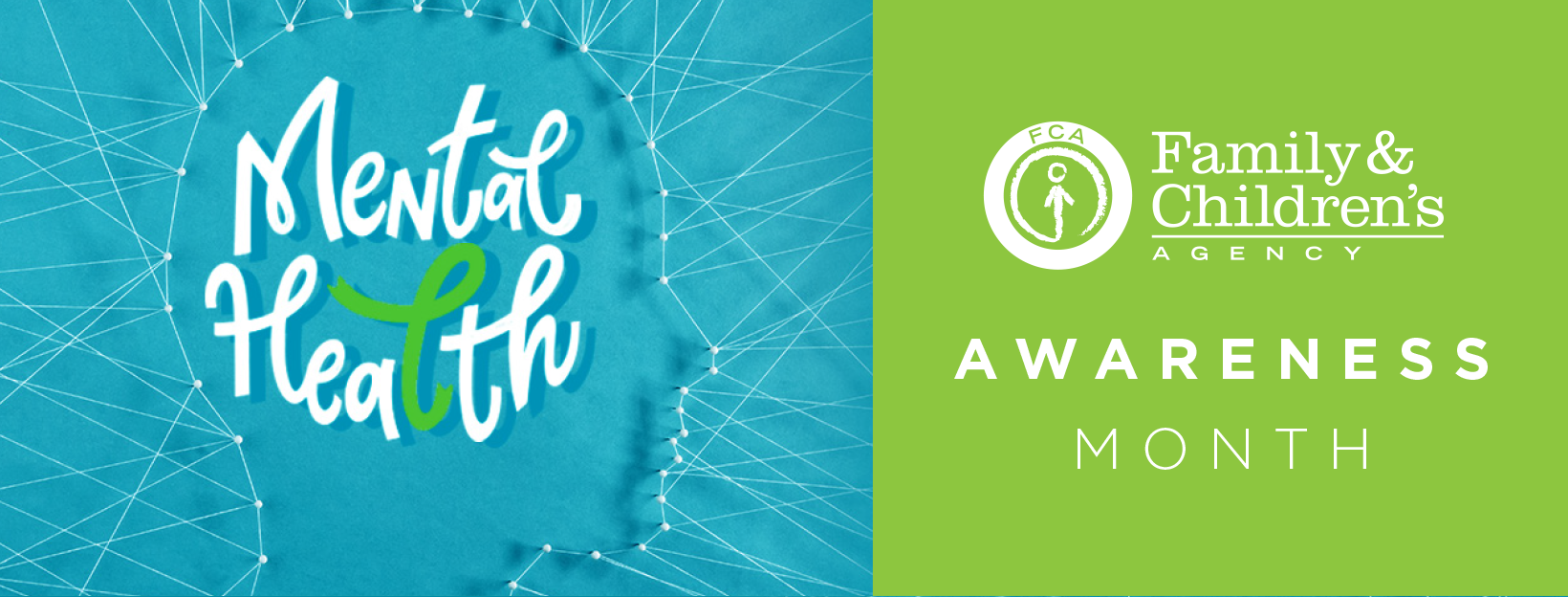
May is Mental Health Awareness Month! Jessica Vivenzio, LCSW and Manager of FCA’s Project Reward Program for women struggling with addiction, will be sharing her expertise on our blog. Today she discusses stress and toxic stress as well as ways to cope and manage. These are helpful tips at any time, but especially in the time of COVID-19.
We’ve all been there. We’ve all said something like, “I’m just so stressed; I can’t handle it anymore.” Yet, we continue to fulfill our role obligations, maybe forgetting a few, but wake up the next day and press on. Stress is something universally shared by all people and experienced every single day. The majority of the stress we encounter is tolerable, meaning that over time we have developed the coping mechanisms needed to move forward. When we experience a stressful event, our bodies respond to the perceived threat by increasing our heart rate and blood pressure to release stress hormones. The time then required to return to your natural baseline will depend upon each individual and the severity of the stressor. This physiological response to stress is best known as “fight, flight, or freeze.”
But, what happens if the body’s stress response becomes chronically activated due to ongoing stressors This phenomenon is commonly referred to as toxic stress. Toxic stress is most predominantly identified within children who have experienced prolonged abuse, neglect, poverty, exposure to violence, and/or living with a caregiver who suffers from substance use or mental illness. These chronic stressors, coupled with a lack of supportive adult relationships, can lead to lengthened activation of the body’s stress response system, which has the power to alter the structure of the brain, significantly affecting both the physical and mental health of an individual throughout his/her lifespan. The National Alliance on Mental Illness reports that a child who claims to have experienced four or more “toxically stressful events was 5 times more likely to attempt suicide, 3 times more likely to suffer from depression, and 4 times more likely to become an alcoholic or intravenous drug user.”
For people who have experienced toxic stress, it is possible for their brains to heal and rebuild over time once that prolonged exposure has ceased. In any case, one of the most critical factors for coping with toxic stress, and even day-to-day tolerable stress, is positive and supportive relationships. Whether you have experienced stress related to everyday life or have suffered through toxic stress in childhood, it is always essential to practice self-care, engage with peers and other support systems, and most importantly, be there for those around you who may be struggling.
Every little detail counts. Pay attention to the signs your body provides and take note of any changes that may occur. Symptoms of stress can include headaches, trouble concentrating, difficulties sleeping, muscle tension, mood swings, and a general feeling of being overwhelmed.
Some common stress management and self-care tips include:
Stress affects every one of us and can be overwhelming at times, even for the most resilient individuals. To find service providers in your area, call 211 or visit 211ct.org.
Consulted articles: